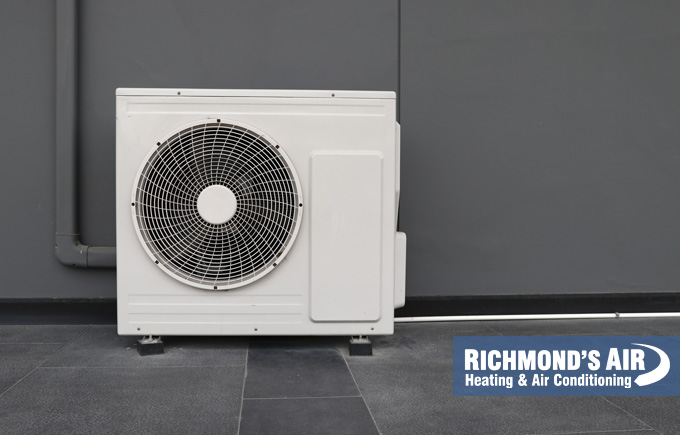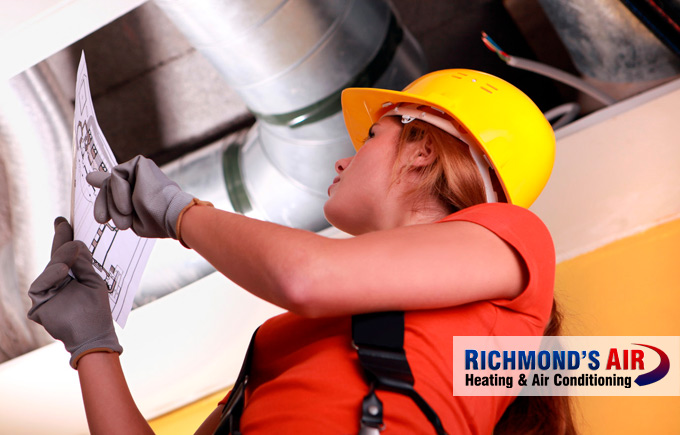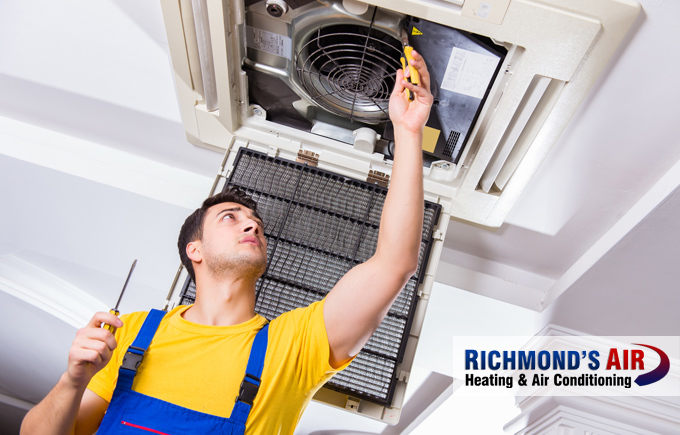
It’s sad but true—air conditioners don’t last forever. A/C units that are over 12 years old have pretty much fulfilled their life expectancy and can become cost prohibitive to repair. When it’s time to replace your air conditioner, here are some tips to help ensure that you’re making a wise investment when it comes to cooling your Texas home.
Choose an Energy Star model
Energy Star-certified air conditioning units are designed to be more energy-efficient than their non-certified counterparts, which generally means they consume less electricity to achieve the same level of cooling. This increased efficiency can lead to lower electricity bills, making it less expensive to keep a home or building cool.
The U.S. Department of Energy has set a standard for the energy efficiency of an air conditioner. Manufacturers are required to make AC units that have a minimum seasonal energy efficiency ratio (SEER) rating of 13. The higher the SEER rating, the more efficient the AC is.
In fact, according to the U.S. Department of Energy, Energy Star-certified air conditioners with high SEER ratings can save consumers up to 35% on cooling costs compared to non-certified units.
A higher rating will also mean the unit is more expensive, but the amount you save on your energy bill makes it worth the investment. Additionally, more energy-efficient AC units can reduce the demand on Houston’s electrical grid, which is an environmental benefit for everyone.
Check the warranty
When you’re making an investment like a central air conditioner, you need to make sure you’re spending your money wisely. Any air conditioner you buy from a reliable company should have a warranty of at least 10 or more years, and it should cover parts as well as the condenser unit.
Additionally, warranties are generally voided if the unit is not installed and serviced by a certified A/C technician, so always make sure you read and understand the fine print.
Consider humidity
When you’re buying an AC, you need to consider your area’s humidity levels. If you live in an area with high humidity, like Houston, you’ll want to get an AC unit that can lower both the temperature and humidity in your home. There are a variety of units that have this capability, but it certainly isn’t standard with every unit, so be sure to check before purchasing to ensure you pick the best AC for humidity.
Consider the timing of your purchase
The best time to purchase a new air conditioning unit can vary depending on a few factors, including seasonal demand, sales promotions and your own cooling needs. Here are some general considerations:
- Off-season (fall and winter). Demand for AC units drops during the cooler months, so you might find that prices are lower in the fall and winter. Retailers may lower prices to clear out inventory for new models. This is often considered the best time to buy in terms of price.
- Spring sales. Many retailers have sales in the spring to encourage people to buy before the peak summer season. This is a great time to buy if you want to avoid the rush and have your new system in place before it gets hot. Additionally, new AC models are generally released in early spring, and retailers may reduce prices on last year’s models to clear out inventory.
If your current AC is working fine and you’re thinking of upgrading, you have the luxury of waiting for a sale or special promotion. This is in contrast to buying under duress when your AC fails in the heat of summer, and you’re forced to make a quick decision.
Buy the correct size air conditioner
When we say “size,” we’re not talking about physical size, but the cooling capacity of the unit. Central air conditioners are sized in tons, so deciding how many tons you need to cool your home is an important decision.
Ensuring that you have the right size air conditioner is crucial for the efficiency of your new unit in your home. Your HVAC contractor should always measure the cooling load of your home, even if you think the same size air conditioner you had last time will work.
Changes in energy efficiency upgrades to your home, like new windows or added insulation, can lessen the cooling load, while additions can increase the load. Making sure that you have the right size air conditioner will mean that you’re satisfied with both the temperature and the humidity in your house, as well as your energy bills.
How Much Does Installing a New Central AC System Cost?
There are a lot of factors that go into an AC installation. Not only location, but also the manufacturer, the type of system, the size of your home, etc.
How can purchasing an A/C that’s too big negatively impact my home?
While it may seem counterintuitive, having an AC unit that’s too big for your home has some negative effects:
- Firstly, it can result in inefficient cooling; the unit may cool the area quickly, but it will likely not run long enough to remove humidity effectively. This can leave your home feeling damp and uncomfortable, despite the cool temperature.
- Secondly, an oversized AC unit will cycle on and off frequently, which can lead to increased wear and tear on the system, reducing its lifespan. This frequent cycling can also make your electricity bills higher than necessary, as starting up the unit generally requires more energy than simply maintaining a consistent temperature.
- Additionally, the frequent temperature fluctuations resulting from the on-off cycling can make the living environment less comfortable and may contribute to inconsistent temperatures throughout your home.
Before getting an AC unit, you need to factor in the insulation in your home, the efficiency of your doors and windows, and how well your home is sealed. Certified HVAC personnel can easily do this for you and recommend the right AC size.
How long do central A/C units typically last in Houston?
With the hot temperature in Houston, the average lifespan of an AC unit is typically 15-25 years. Window ACs usually last about a decade. That said, there are several factors that determine how long your unit lasts, including the type, brand and size of your AC, so be sure to do your research.
Installation and maintenance also have an effect on your unit’s lifespan. If the unit isn’t properly installed or maintained, it may not last as long as you expect. Other factors that can affect longevity include the frequency of use and the climate in your area.
What’s the Process for Replacing a Central AC System in Houston, TX?
Thinking about upgrading your current AC? Our HVAC experts explain the process from start to finish so you’ll know what to expect.
Tips for hiring the best HVAC company in Houston
In the high-demand heating and cooling industry in Houston, selecting the right HVAC technician is crucial to safeguarding your substantial investment in your HVAC system. If you choose well, the same HVAC technician who installs your new air conditioner will be the same one who performs any service or repairs for years to come. Unfortunately, not all HVAC contractors are trustworthy.
Experience and knowledge are paramount; it’s essential to inquire about a technician’s years of experience and the company’s history. It’s also essential to ensure the technician holds the necessary licenses and certifications, like NATE certification, which is a mark of a rigorously trained professional.
A solid reputation is indicative of reliability; hence, it’s advised to review customer feedback and check references, as well as consult third-party evaluations like those from the Better Business Bureau. Just so you know, at Richmond’s Air, we’re pleased to report an A+ score with the BBB, and many of our techs are NATE certified.
Another important note: Before giving you an estimate, a trustworthy HVAC company should inspect your home to determine the appropriate system size and equipment; an over-the-phone estimate can be a red flag. Fair and transparent pricing is essential, but the lowest price does not always guarantee the best service, so it’s wise to get multiple estimates.
Finally, dependability and trustworthiness are key; your chosen HVAC company should be punctual and transparent, with no hidden fees in their billing.
Thinking about buying a new AC in Houston? Contact the HVAC experts at Richmond’s Air.
When it comes to living in Texas, the experienced HVAC technicians at Richmond’s Air (serving Houston, Katy, Spring, Bellaire and surrounding communities) know how important central air is to your home.
When it’s time to replace your central air unit, we’re here to help you find the right unit to cool your home for years to come. Contact us today with questions you have about upgrading your system, or read our Heat Beat to learn more about your home’s air conditioner.
 Read reviews
Read reviews










